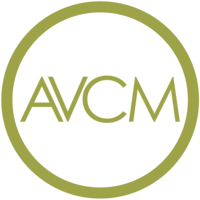
Clearly, now is the time to have a standout resume. You do that by developing a killer summary. Your summary has to convince employers that you are the one and only applicant. You set the gold standard and the rest of the applicants are invited in for an interview after you.
So how do you do that? You market yourself through your narrative. Your potential employers will learn something unique about your expertise as well as your credentials and they’ll get a good sense of how well you communicate. You have to be a skilled writer and be able to “pitch” yourself in a matter of seconds.
To write a great summary, you will want to get an idea of what information should not be communicated in your resume. While a summary gives employers insights into you, it is not a place for you to mention personal information unrelated to your career. Don’t send out resumes with Information including age, marital status, health, height/weight or personal affiliations. Leave these items off because having personal info on your resume can easily get you eliminated from the applicant pool.
Make It Relevant
Anything that is not relevant to the position or your potential employer should be taken out of your resume. Generally, you don’t need to add in previous professional experience within the summary unless you can clearly demonstrate how such a background can be of value. Watch out for generic statements, such as “I am highly organized and detail oriented.” Stuff like this just looks like filler and it is not impressive.
Your summary should just be a short paragraph with just a few sentences – you don’t want to take up a quarter of the page. Start with a headline that summarizes your professional title. You can emphasize your title by bolding and using a larger font – this allows your potential employer to grasp who you are quickly. For example:
Experienced Financial Planner
Realized double-digit return for all clients through well-balanced financial portfolios
Craft a high impact statement as this is the first impression your potential employer will have of you. Here are three things that a well-written summary should include and address:
• Your level of expertise
• Your experience as it relates to your ideal job
• What you bring to the organization and the position that no other candidate can
Compose your summary in third person and in present tense. Be sure to sell only the experience and skills that align with your career objective. If you have numerous career objectives – meaning you want to get a position in either marketing or public relations, create separate summaries for each of these objectives.
Just like your resume, your summary should be well-written and error-free. Review and proofread your summary, and remember to customize as necessary for the all opportunities of interest. A killer summary will leave a great first impression and will “hook” your prospective employer. It will set the standard and sell you as the top candidate for the job.
Resume writing does not have to be intimidating. Go ahead… craft a killer summary and you’re off to a great start.

